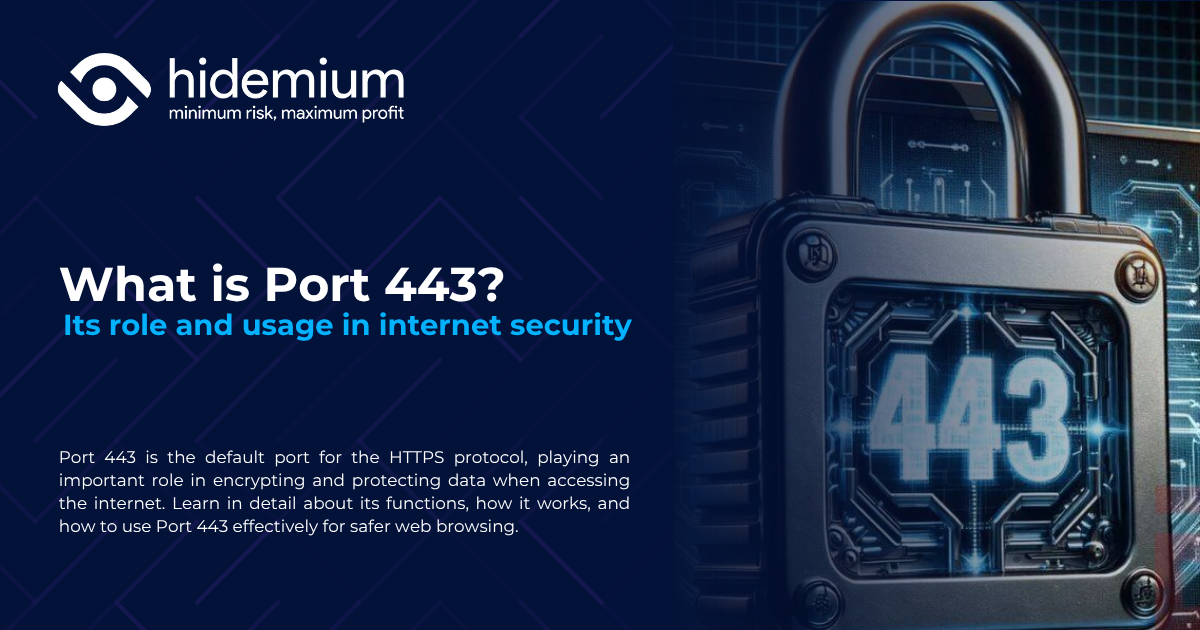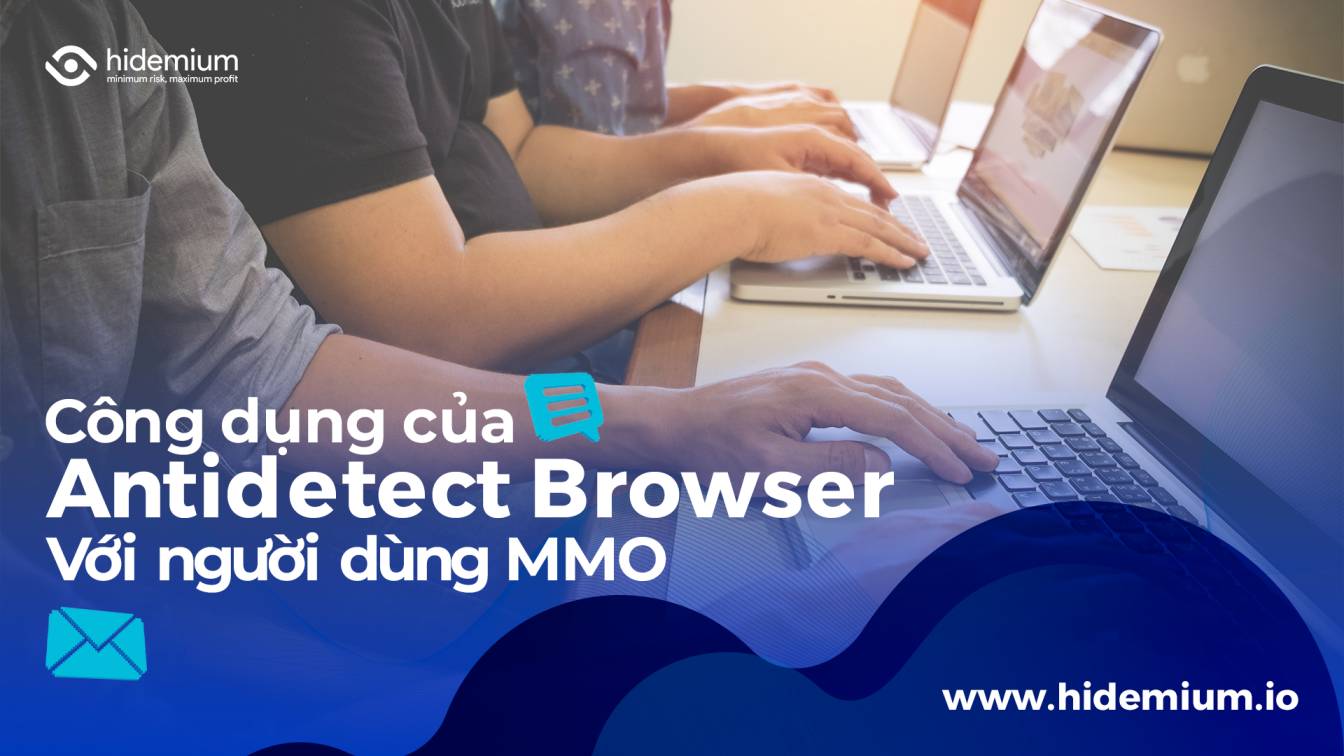In the context of the increasingly expanding Internet, IP addresses are the core element for connecting and identifying devices. However, many proxy users still encounter limitations when using IPv6 proxies, especially on major platforms such as Google, Facebook, Amazon, eBay, TikTok and many other popular services. So why is IPv6 proxy access limited? Why are mainstream platforms still not widely supporting IPv6, while IPv4 is gradually depleted? Let's analyze in detail with Hidemium in the article below.
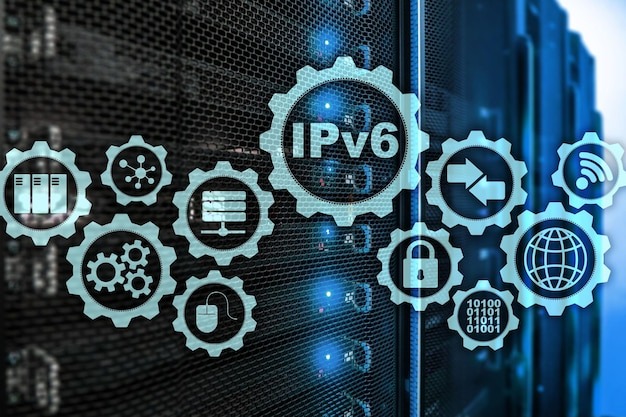
1. Overview of IPv6 and IPv4 proxies
In the modern networking world, the use of proxies has become increasingly popular to enhance security and anonymity when accessing the Internet. The two main protocols used to transmit data over the network are IPv4 and IPv6. Each protocol has its own characteristics that affect how proxies work. This section will provide an overview of the differences between IPv4 and IPv6, thereby helping to better understand why the transition to IPv6 is taking place.
1.1 Difference between IPv4 and IPv6
IPv4 and IPv6 differ in address structure, capacity, and supported features. IPv4 uses 32-bit addresses, allowing for about 4 billion addresses, while IPv6 uses 128-bit addresses, providing the ability to create trillions of addresses. This helps IPv6 solve the problem of IPv4 address exhaustion. In addition, IPv6 improves security features and supports more complex network connections.
- IPv4 (Internet Protocol version 4) is the most popular network protocol version today, using 32-bit addresses, allowing the creation of about 4.3 billion IP addresses.
- IPv6 (Internet Protocol version 6) is the next generation with an address length of up to 128-bits, providing up to 340 undecillion IP addresses — a virtually endless number.
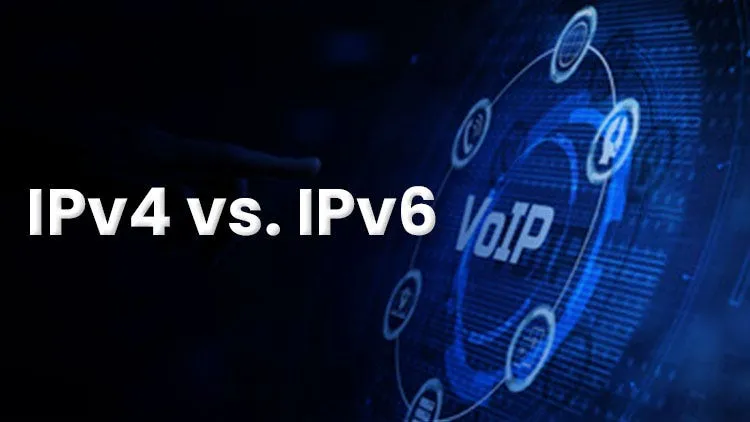
1.2 Why switch to IPv6?
With the development of Internet of Things (IoT), smartphones, computers, smart homes... the demand for IP addresses is increasing rapidly. IPv4 is gradually becoming scarce and IPv6 is expected to be a long-term solution. However, this transition faces many technical barriers and lack of synchronization on major platforms. This is also the reason why many websites and services stillIPv6 proxy are not supported or blocked.
2. What is IPv6 Proxy?
An IPv6 proxy is an intermediary server service that allows users to browse the web or access services using an IPv6 IP address. These proxies are commonly used in:
- Marketing automation (auto-posting, data crawling): IPv6 proxies allow for the automation of marketing tasks such as automatic posting or crawling from multiple sources. Using a proxy helps users avoid detection and reduces the risk of being blocked when performing these activities, especially when collecting information from multiple websites at the same time. This saves time and increases the effectiveness of marketing campaigns.
- Test website from different locations: During testing, it is important to check the performance of the website from different geographical locations. IPv6 proxy allows users to access the website from different IPs, which helps to get a more accurate assessment of how users in different regions interact with the website. This provides valuable information to optimize the user experience.
- Run ads with multiple accounts: Using an IPv6 proxy allows advertisers to manage multiple accounts without fear of being detected. This is useful for optimizing ads and testing different campaigns. Proxies reduce the risk of account suspension and allow users to run advertising campaigns more securely.
- Stay anonymous and avoid account lockout when using multi-threaded tools: When using multi-threaded tools to perform multiple tasks at once, the risk of being detected and your account being blocked is very high. IPv6 Proxies help keep your identity private, creating an additional layer of protection, minimizing the possibility of being blocked when performing online activities.
Advantages of IPv6 proxy
IPv6 Proxy has many outstanding advantages, helping users more easily access and manage online activities.
- With a large IP address structure, IPv6 proxy allows users to have a virtually unlimited number of IP addresses. This makes it easy for users to purchase and use IP addresses at competitive prices, supporting activities that require many different IP addresses without worrying about running out of resources.
- Due to the greater number of IP addresses, IPv6 proxies have a lower reuse rate, resulting in less chances of being blacklisted than IPv4. This helps users maintain continuous operations without interruption due to IP-related issues.
- With the ability to provide multiple IP addresses, IPv6 proxies allow users to easily scale their systems, from managing multiple accounts to performing multi-threaded tasks without encountering major barriers.
Although IPv6 proxies offer many benefits in marketing automation, website testing, running ads with multiple accounts, and maintaining anonymity, users still encounter many barriers when using this type of proxy on major platforms. Specifically, many platforms such as Facebook, Google, and TikTok do not support or block IPv6 proxies, resulting in users being unable to access or perform desired activities. This not only reduces the effectiveness of online campaigns but also makes it difficult to manage accounts. Therefore, users need to carefully consider and learn about alternative solutions to optimize their experience in the online environment.
3. Why don't mainstream platforms support IPv6 proxies?
Despite the many benefits IPv6 offers over IPv4, many mainstream platforms have yet to fully transition to IPv6 proxy support. This can be due to a variety of reasons, especially infrastructure-related issues. This section will examine why infrastructure mismatch is one of the biggest barriers to IPv6 proxy deployment.
3.1 Unsynchronized technical infrastructure
Although IPv6 was introduced in 1998, major platforms still maintain a large portion of their infrastructure based on IPv4. The reasons include:
- The cost of investing in IPv6 infrastructure is very high: Server systems, databases, and security software must be reconfigured to support IPv6 addresses.
- Imperfect backward compatibility: IPv6 and IPv4 are not directly compatible with each other. For a system to operate with two types of addresses in parallel, conversion mechanisms (Dual-stack, NAT64, DNS64…) are needed, which causes complexity and risks.
3.2 Security is key
Many security experts believe that supporting IPv6 will increase security risks because:
- Firewalls, IDS/IPS, VPNs, and monitoring software are all primarily designed for IPv4.
- New IPv6 vulnerabilities are not yet fully controlled due to their low prevalence.
- It is difficult to control abuse from cheap and widespread IPv6 proxies.
Therefore, Facebook, Google, TikTok... still prioritize IPv4 to ensure stability and better access control.
3.3 Controlling multi-account operations
Platforms like TikTok, Facebook, eBay... are always looking for ways to combat behavior:
- Run multiple virtual accounts (multi-accounting).
- Spoofing IP addresses for spam/uncensored advertising.
- Avoid being detected in auto tools, bot traffic.
IPv6 – with its ability to “spam” IP addresses indefinitely – will be a control nightmare for platforms. As a result, many systems:
- Automatically block access from suspicious IPv6 IP ranges.
- Do not grant resource access if IP is IPv6.
- Requires IPv4 connection to verify account or run ads.
4. Restricted situations when using IPv6 proxy
While IPv6 proxies offer many benefits, there are some specific situations where their use can be limited. One of the most common examples is when using IPv6 proxies to run ads on platforms like Facebook. This can cause some performance and compatibility issues, affecting the effectiveness of your ad campaigns.
4.1 Facebook ads
When using IPv6 proxies for Facebook advertising, users can encounter several serious problems:
- Unable to log in to BM (Business Manager).
- Ad account is continuously checkpointed if using IPv6 proxy.
- Block IP when running a clone account or check live UID.
4.2 Google
Similarly, when using IPv6 proxies with Google services, users will encounter many unwanted barriers:
- Many services like Google Search, Gmail, Google Ads block access from IPv6 proxies.
- May require continuous verification (captcha, SMS code sending, login key).
- The Google Ads API does not work with untrusted IPv6 proxies.
4.3 Tik Tok
TikTok is also a platform where using an IPv6 proxy can cause a number of problems:
- TikTok fingerprints very strictly, IPv6 IPs are often marked as "unusual".
- Using IPv6 proxy causes dropshipping and affiliate accounts to be shadowbanned or not display content.
4.4 Amazon, eBay
When using IPv6 proxies on e-commerce platforms like Amazon and eBay, users face several serious challenges:
- E-commerce platforms have strong fraud detection mechanisms, suspecting all activities through IPv6 proxies.
- Easy to get "locked listing", seller account locked, especially when there are unusual transactions.
From the above analysis, it can be seen that although IPv6 proxies have certain benefits, there are also many serious limitations in specific usage scenarios. Using IPv6 proxies on platforms such as Facebook, Google, TikTok, Amazon or eBay can lead to many problems, from difficulties in logging in and verifying accounts to the possibility of having your account blocked or locked.
5. What is the alternative solution when IPv6 proxy is limited?
When faced with limitations with IPv6 proxies, finding alternatives is necessary to ensure smooth online activities. Different methods can help users maintain stable and efficient connections. One of the popular solutions is to use IPv4 proxies, especially residential or mobile types, to overcome the existing barriers.
5.1 Use residential or mobile IPv4 proxy
Residential or mobile IPv4 proxies are proxies that are issued by real Internet Service Providers (ISPs), such as Viettel, FPT, AT&T, and simulate the IP address of a normal user. This type of proxy has a high compatibility rate with most online platforms, making it easy for users to access and use the service without encountering any barriers.
- This is a proxy type provided by a real ISP (network operators such as Viettel, FPT, AT&T...), simulating the IP like a normal user.
- Has a high compatibility rate with most platforms.
- Hard to detect as a proxy → helps manage multiple accounts more securely.
5.2 Use antidetect browser like Hidemium
As more and more users need to manage multiple accounts on the same platform without being detected, the use of anti detect browsers like Hidemium is becoming more and more popular. Hidemium is specifically designed to optimize the ability to operate multiple accounts in parallel while still ensuring safety and security.
Hidemium is an antidetect browser optimized for running multiple accounts in parallel:
- Fake IP, Device, Canvas, WebRTC, Fonts, Geo-location...
- Easy IPv4/IPv6 proxy management integration.
- Create a virtual environment for each profile → avoid fingerprint linking.
- Support bulk import of accounts, cookies, sessions.
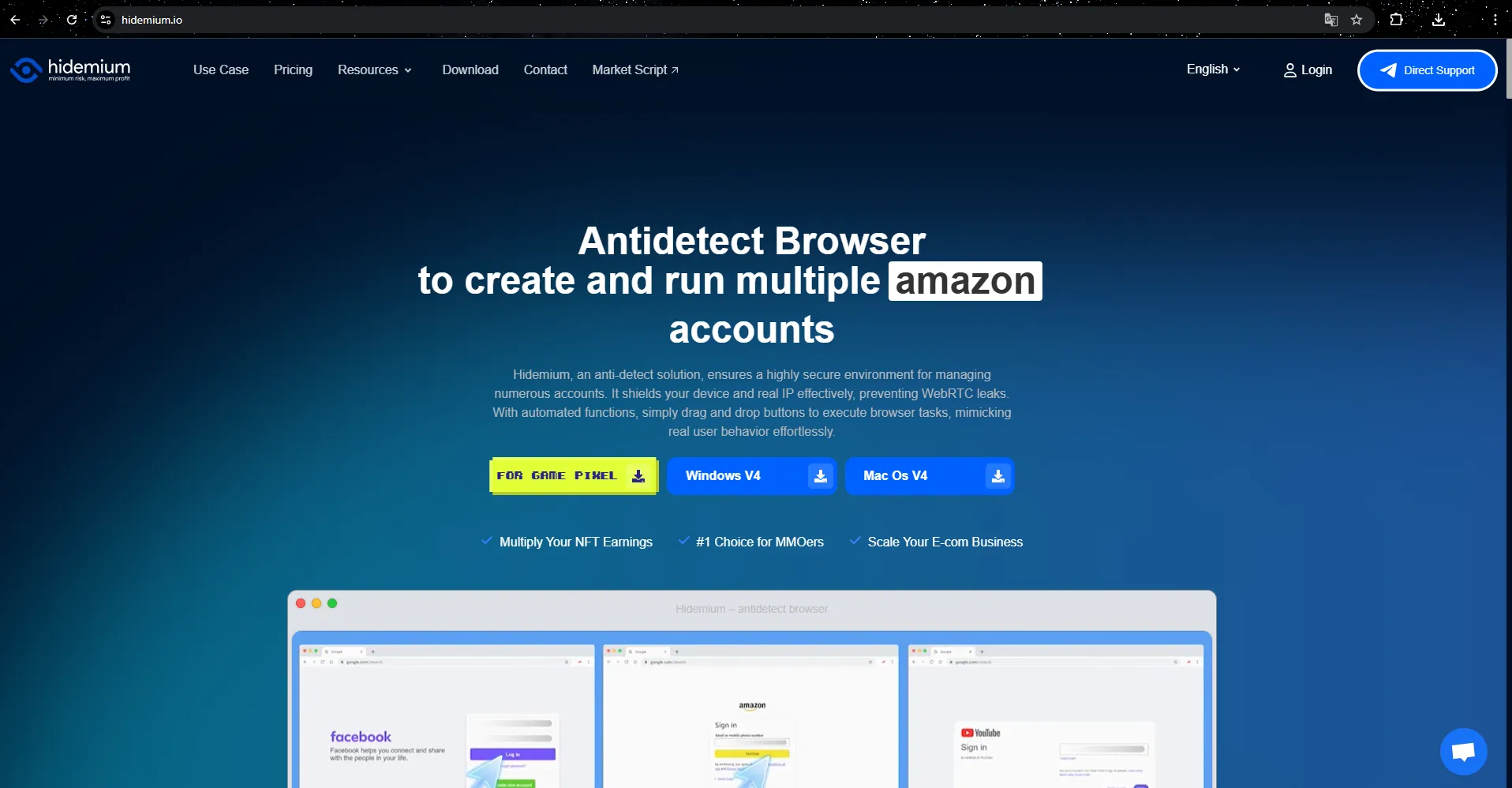
💡 Tip: Combining residential IPv4 proxy + antidetect browser Hidemium can increase account survival rate by 3-5 times compared to using only IPv6 proxy.
5.3 Using IPv6 Proxies for Uncensored Platforms
Although IPv6 proxy is limited on major platforms, it still works well on:
- News sites, blogs, forums.
- Crawling SEO data.
- Check website rankings, tracking backlinks.
- Access APIs without identity verification.
6. Will IPv6 be better supported in the future?
The answer is yes, but not soon.
- Google and Facebook have supported IPv6 access from their own infrastructure, but still prefer IPv4 for security.
- The global network infrastructure is gradually being upgraded, but it will take another 5-10 years for IPv6 to become ubiquitous in every corner of the Internet.
- IPv6 proxies need to meet higher standards (anonymous, stable, low abuse) to be trusted by platforms.
Should I use IPv6 Proxy?
Criteria | IPv4 | IPv6 |
| Large platform accessibility | very high | short |
| High price | high price | cheap |
| Anonymity | good if used residential type | easily detected |
| Multi-account management capabilities | Fit | blocked many |
| Compatibility with antidetect browser | Good | limit |
👉 Advice from Hidemium:
If you are running automation, dropshipping, affiliate, Facebook or TikTok ads… then you should prioritize IPv4 Residential or Mobile Proxy, combined with Hidemium browser to increase security. IPv6 Proxy should only be used for crawling purposes, speed testing or tasks not related to user verification.
>>> See more related articles:
- What is IPv6? Detailed comparison between IPv6 and IPv4
- How to Fake IP Effectively Using VPN and Proxy – Comprehensive Guide in 2025
- IPFoxy FoxyProxy Review for TikTok: Detailed Installation Guide
- TabProxy Review: Is This Residential Proxy Really Worth Using?
- Top 15 Free, Trusted and Reliable Proxy Sites
Related Blogs
BitBrowser 2025 – A Simple and Powerful Anti-Detect Browser for Multi-Account Management Managing multiple online accounts across platforms has become a daily necessity for marketers, e-commerce sellers, crypto users, and digital professionals. However, the risks of account linkage, bans, and privacy leaks are more real than ever. That’s where BitBrowser comes in—a robust anti-detect browser[…]
In the modern internet environment, security is always a top concern. One of the factors that plays an important role in protecting online data is Port 443 - the standard connection port of the HTTPS protocol. So specifically Port What is 443? and why is it so important? Let's go together Antidetect Browser Hidemium Learn how Port 443 works, functions and instructions for using Port 443[…]
Affiliate marketing hiện đang là một trong những phương pháp phổ biến nhất để kiếm tiền trực tuyến. Đây là một mô hình kinh doanh mà người tiếp thị quảng cáo sản phẩm hoặc dịch vụ của một công ty khác và nhận được hoa hồng khi có người mua hàng thông qua liên kết […]
Doing YouTube is no longer a trend, it is a serious career and can generate sustainable passive income, witnessing the development from "just for fun" to YouTube becoming a "billion dollar money making machine".If you're wondering, "Is YouTube still viable for beginners?", the answer is yes – and even more than before. This article Hidemium Antidetect Browser will summarize all the necessary[…]

.png)
